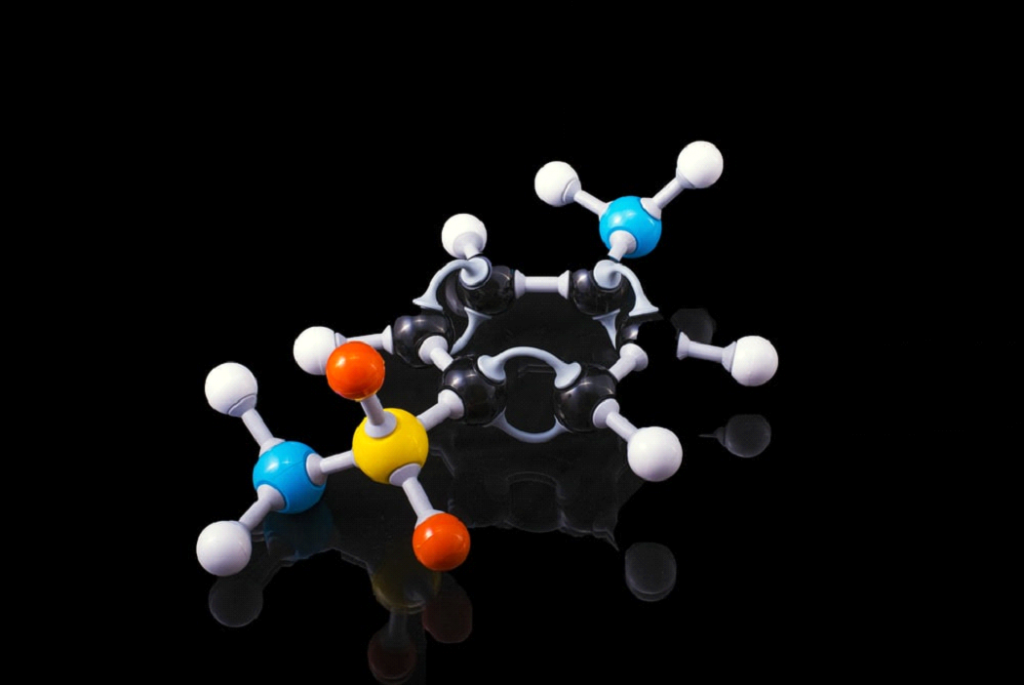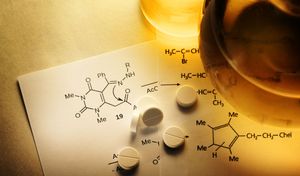Organic chemistry is a branch of chemistry that deals with the study of carbon compounds and their reactions. Carbon is a unique element, and organic chemistry is unique in that it is the study of compounds that contain carbon atoms. The study of organic chemistry is essential in many fields such as medicine, materials science, biology, and agriculture. This article aims to provide an overview of what organic chemistry is and its importance in modern science.
The Importance of Carbon
Carbon is the fourth most abundant element in the universe and the second most abundant element in the human body. It is unique in its ability to form covalent bonds with other carbon atoms, as well as other elements such as hydrogen, oxygen, and nitrogen. This ability to form complex molecules makes carbon the building block for life, and the study of organic chemistry is essential to understanding the chemistry of life.
Organic chemistry deals with compounds that contain carbon, but not all carbon-containing compounds are considered organic. Carbonates, for example, are not considered organic compounds because they do not contain hydrogen. Organic compounds can be divided into several classes, including hydrocarbons, alcohols, aldehydes, ketones, carboxylic acids, and amines. Each class of compounds has unique chemical properties and reactions.

The History of Organic Chemistry
The study of organic chemistry began in the 19th century when scientists discovered that organic compounds could be synthesized from inorganic compounds. This was a significant breakthrough because it proved that organic compounds were not inherently different from inorganic compounds but were instead products of chemical reactions.
One of the pioneers of organic chemistry was Friedrich Wöhler, who is credited with synthesizing urea in 1828. Urea is an organic compound found in urine and was previously thought to be produced only by living organisms. Wöhler's synthesis of urea demonstrated that organic compounds could be synthesized in the laboratory, which challenged the belief in vitalism, the idea that living organisms were unique and could not be explained by the laws of physics and chemistry.
In the early 20th century, the study of organic chemistry advanced rapidly with the discovery of new synthetic methods and the development of spectroscopic techniques that allowed for the identification of organic compounds. Today, organic chemistry is a vast field that encompasses the study of a wide range of compounds and their reactions.
The Importance of Organic Chemistry
Organic chemistry is essential in many fields, including medicine, materials science, biology, and agriculture. In medicine, organic chemistry is used to develop new drugs and understand how they work in the body. Organic chemists design and synthesize new compounds that can be used to treat diseases or alleviate symptoms.
In materials science, organic chemistry is used to develop new materials with unique properties. For example, the development of polymers, which are large molecules made up of repeating units, has revolutionized the materials industry. Polymers are used to make a wide range of products, including plastics, fibers, and adhesives.
In biology, organic chemistry is used to understand the chemical reactions that occur in living organisms. The molecules that makeup living organisms are complex, and the study of organic chemistry is essential to understanding how these molecules are synthesized and broken down in the body.
In agriculture, organic chemistry is used to develop new pesticides and herbicides that are effective in controlling pests and weeds while minimizing the impact on the environment. Organic chemists also develop new fertilizers that can improve crop yields and reduce the use of harmful chemicals.
The Basics of Organic Chemistry
Organic chemistry is based on the study of carbon compounds and their reactions. Carbon has four valence electrons, which allows it to form four covalent bonds with other atoms. These bonds can be single, double, or triple bonds, depending on the number of electrons shared between the atoms.
Organic compounds can also contain functional groups, which are specific arrangements of atoms that give the molecule its chemical properties. For example, an alcohol functional group contains a hydroxyl (-OH) group attached to a carbon atom. Alcohols have unique chemical properties, including the ability to form hydrogen bonds and undergo reactions such as oxidation and reduction.
Organic compounds can undergo a wide range of reactions, including addition, elimination, substitution, and rearrangement reactions. These reactions can be used to synthesize new compounds, modify existing compounds, and understand the mechanisms of chemical reactions.
One of the key tools used in organic chemistry is spectroscopy, which involves the use of light to study the properties of molecules. Spectroscopy can provide information about the structure and properties of organic compounds, including their mass, electronic structure, and vibrational frequencies.
Common Techniques Used in Organic Chemistry
Organic chemistry employs a variety of techniques for synthesizing, analyzing, and characterizing organic compounds. Some of the common techniques used in organic chemistry include:
- Synthesis: Organic chemists use a variety of methods to synthesize new compounds, including reactions such as Grignard reactions, Friedel-Crafts reactions, and Diels-Alder reactions.
- Chromatography: Chromatography is a technique used to separate and purify mixtures of organic compounds based on their physical and chemical properties. Common chromatography techniques used in organic chemistry include gas chromatography, liquid chromatography, and thin-layer chromatography.
- Spectroscopy: Spectroscopy is a technique used to study the properties of organic compounds by analyzing the way they interact with light. Common spectroscopy techniques used in organic chemistry include infrared spectroscopy, nuclear magnetic resonance spectroscopy, and mass spectrometry.
- Computational chemistry: Computational chemistry involves the use of computer simulations to study the structure, properties, and reactions of organic compounds. Computational chemistry can be used to predict the properties of new compounds, study reaction mechanisms, and optimize synthesis routes.
Conclusion
Organic chemistry is a fundamental branch of chemistry that deals with the study of carbon compounds and their reactions. Carbon is a unique element that forms the building blocks of life, and the study of organic chemistry is essential to understanding the chemistry of life. Organic chemistry has a wide range of applications in medicine, materials science, biology, and agriculture, and the development of new compounds and materials relies heavily on the principles of organic chemistry. The study of organic chemistry is a fascinating and rewarding field that offers numerous opportunities for research, discovery, and innovation.
Frequently Asked Questions About Organic Chemistry
What is organic chemistry?
Organic chemistry is the branch of chemistry that deals with the study of carbon-containing compounds, including their properties, structures, and reactions.
Why is carbon so important in organic chemistry?
Carbon is important in organic chemistry because it has the ability to form strong covalent bonds with other carbon atoms and with other elements like hydrogen, oxygen, nitrogen, and sulfur. This allows for the formation of a wide variety of organic molecules with diverse properties.
What are some examples of organic compounds?
Some examples of organic compounds include carbohydrates, lipids, proteins, nucleic acids, vitamins, and hormones. Organic compounds also include many everyday substances like plastics, dyes, drugs, and fuels.
What is the difference between organic and inorganic chemistry?
Organic chemistry deals with the study of carbon-containing compounds, while inorganic chemistry deals with the study of non-carbon-containing compounds. Inorganic chemistry includes the study of metals, minerals, and other elements, as well as their properties and reactions.
What are functional groups in organic chemistry?
Functional groups are specific atoms or groups of atoms that are responsible for the characteristic properties and reactivity of organic molecules. Examples of functional groups include alcohols, aldehydes, ketones, carboxylic acids, and amines.



